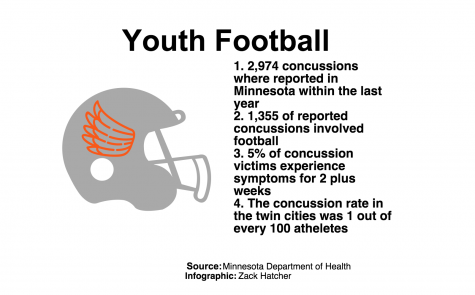Education over elimination required
Youth football teaches valuable lessons
March 7, 2016
Other sports provide similar lessons learned in football, but the type of teamwork football creates differs. The upfront fighting as a unit creates a brotherhood that no other sport can replicate.
With many other team sports such as baseball or basketball, much of the game concentrates on one individual at a time making heroic plays. In contrast, football fosters a united fight, where every player performs a crucial role. Youth football also provides a place for kids to learn to pick themselves up after getting knocked down.
In recent years, many organizations attempted to ban kids from playing the sport because of the dangers associated with it. Although football often gets all the attention for injuries to players, there are risks associated with playing most sports.
Proper tackling technique helps reduce the amount of injuries caused by football and creates a more responsible game. Instead of outlawing the sport, improving the safety and awareness within the sport could solve many of the issues. Teaching players from a young age not to use their head while hitting and tackling prevents many of the common head injuries that players face.
Many of the practices that cause injury — such as horse collaring, clotheslining and chop blocking now count as penalties.
In addition to improving tackling techniques, the USA Football Association created new standards for youth football which are included in their program Heads Up Football. These new regulations include educating coaches on identifying and diagnosing injuries, an application for reporting injuries in progress and training for players and coaches.
New players should spend their first year of the sport in flag football, which would teach many fundamentals while decreasing the risks associated with inexperienced tackling and blocking. Once players have gained essential knowledge of how to properly play positions, participation in football would be safer.
Educating players on the risks of the sport and how to avoid injuries should occur before players are able to participate in full-contact football. Training and education on proper tackling technique could greatly reduce injuries caused by inexperience and lack of skill.
Concerns about the safety of youth football are legitimate. However, decreasing the risk through training would allow youth to gain the valuable life skills of discipline, sacrifice and teamwork.













